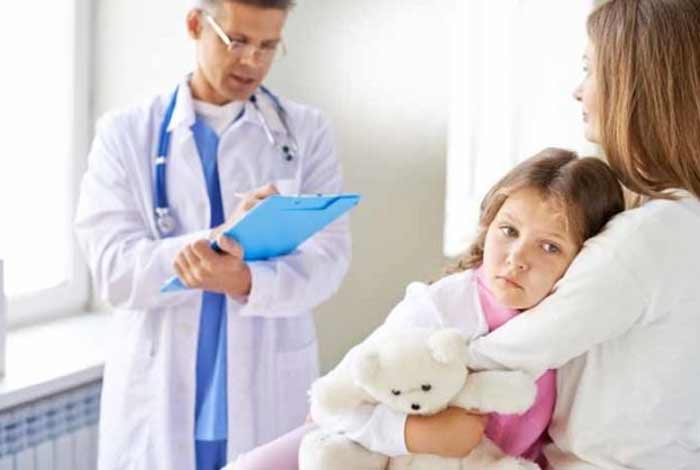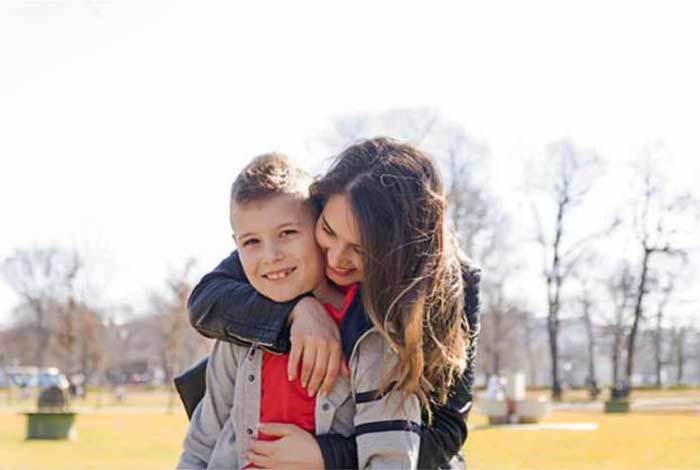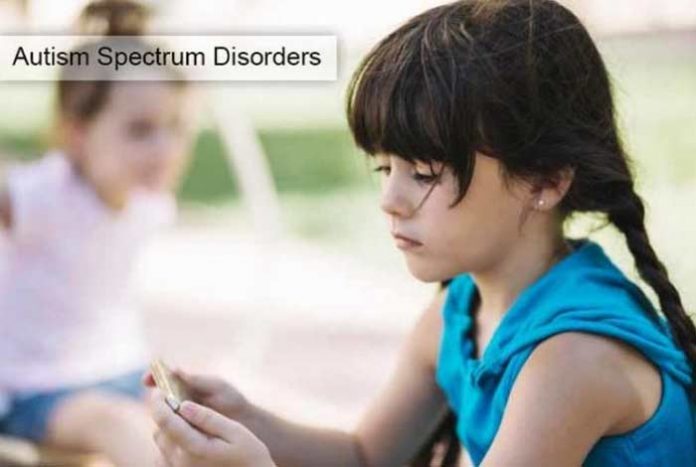
Overview and Facts:
Autism spectrum disorder (ASD) is basically a name assigned to a bunch of related developmental disorders. It refers to a condition in which people faces challenges with speech, non-verbal communication, repetitive behaviors and social skills. A child with ASD also bear some unique differences and strengths that distinguish them from normal kids. In fact, the word “spectrum” explains a range of strengths as well as challenges faced by people with ASD. Autism is caused by an array of genetic and environmental factors.
Autism is usually detected between the age of two to three years. It can also be diagnosed as early as 18 months in some cases. Children have trouble in communicating and understanding what other people think and feel. They feel very difficult to explain themselves either with words, expressions, gestures or touch. Concerned parents should get their child examined without delay as early mediation can improve conditions and outcomes in the treatment of autism.
Autism is one of the fast-growing disorder in the US. It broadly impacts the nervous system of the person, and affects emotional, mental and physical health of the individual. Autism currently affects 1 in 68 children and 1 in 42 boys. Boys are five times more prone to autism than girls. While there is no medical cure for autism, but changing the lifestyle can significantly help prevent or reduce the symptoms of autism.
Types and Symptoms of ASD
1. Types of Autism Spectrum Disorder:
ASD is a disorder in which an individual faces communication, social and behavioral challenges. These can be mild or severe. ASD is broadly categorized into four types based on symptoms:
- Asperger’s Syndrome: A person with Asperger’s syndrome may be very intelligent and are able to handle their daily activities on their own. However, they might be less social and find it difficult to involve themselves in social gatherings.
- Autistic Disorder: This autism disorder has same type of symptoms as those of Asperger’s syndrome, but at a severe state.
- Pervasive Developmental Disorder, Not Otherwise Specified (PDD-NOS): The symptoms of this disorder are severe than those of Asperger’s syndrome, but not as severe as autistic disorder.
- Childhood Disintegrative Disorder: This is the rarest type of disorder with most severe symptoms. In this condition, children develop normally, but gradually loose command over language as well as social and mental skills between the age of 2-4. These children may also develop seizure disorders.
2. Symptoms of Autism Spectrum Disorders:
People with autism have symptoms that greatly differ in terms of severity and age. Some common ASD symptoms include:
A. Social Relationship and Interaction:
- Problems related to non-verbal communication, such as body postures, eye-to-eye contact and facial expressions.
- Unable to be friends with children of the same age group.
- No interest in sharing achievements and enjoyment with other people.
- Lack of understanding for the feelings for other persons like sorrow and pain.
B. Verbal and Non-Verbal Communication:
- Lack or delay in learning to talk.
- Problems in starting any conversation and difficulty in continuing the conversation if it has started.
- Repetition of the same phrase or language which is heard by people with ASD previously.
- Difficulty in understanding a listener’s perspective, whether he/she is using humor or talking on some serious topic. People with ASD usually understand word for word whatever has been communicated to them, and do not understand the implied meaning.
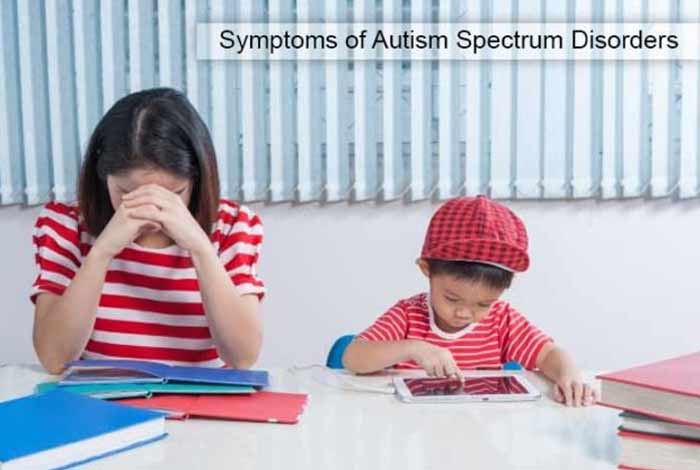
C. Limited Interest in Activities:
- Focus only on a specific part of the toy rather than playing with the whole toy.
- More fascinated with trading cards, video games, etc.
- A need of routines and sameness. For instance, children with autism ask to follow the same route to school every day.
- Hand flapping and body rocking might be a part of their behaviors.
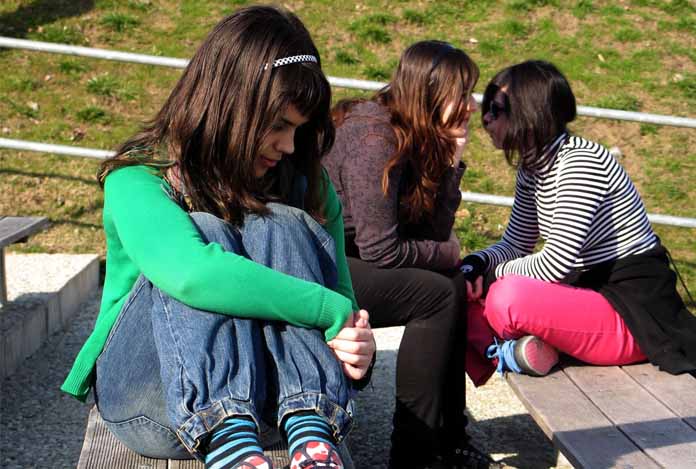
D. ASD Symptoms During Childhood:
These symptoms are usually observed during the first three years of a child after birth. Though ASD is present at the time of birth, it is very difficult to diagnose the symptoms during as early as infancy. In this age, children with autism are not interested in playing certain games. They even are not interested in starting a conversation. Parents may be confused with their hearing abilities as well. It seems that they do not hear or listen to a distant noise, such as a whistle of the train. Nevertheless, with the help of early and focused treatment, they may become better with their capabilities to communicate and develop social skills.
E. ASD Symptoms During Teenage:
During the teen years, behavior often changes. Many teens acquire skills, but lack expected ability to relate to and understand others. Sexuality and puberty may be more difficult for teenagers with ASD. They are more susceptible to develop mental problems like epilepsy, anxiety and depression.

F. ASD Symptoms During Adulthood:
Some adults with autism can live their life independently. They are intelligent as well as have ability to communicate skillfully. On the other hand, a few needs a lot of assistance, especially those, who are low in their intelligence and unable to speak. Part-time or full-time supervision may be required in such cases. Adults with high-functioning autism are successful on professional grounds, and are able to live their life independently. However, they may face difficulties in relating to others. These individuals can be above-average to average intelligent.
Other Common Symptoms:
People with autism specially have problems with social relationships. A few people exhibit some form of intellectually special skills, such as calculating calendar dates, memorizing lists, drawing or music ability. However, on the other hand, some people with autism have unusual sensory conceptions like they may describe a light touch as pain inducing, and deep pressure as soothing. They also have strong likes and dislikes in foods. The most difficult problem with the people with autism is that they usually run away from or avoid their caregivers, which is very stressful for the caregivers.
Risk Factors of ASD:
According to a shocking statistic, 10 to 15% of the babies are now born with some kind of developmental disorders with autism being the most prevalent condition. Some ASD risk factors are discussed below:
- Mycotoxins: These are by toxic chemical substances by molds, found mostly in grains, wine, coffee and pork. It has been tested in the U.S. that the foods containing mycotoxins have more likelihood to cause autism and puts males at a higher risk of developing autism. While studies also suggest that mycotoxins are not the basic cause of ASD, it may trigger the symptoms of autism.
- C-Sections: Babies, born through cesarean section, are more prone to have neurodevelopment disorders than those born through traditional methods. C-sections are mostly done in the cases, where the babies are to be delivered before the due date. So, they are more likely to have developmental disorders like ASD. So, it is advisable for the mothers to consider every birthing option before opting for C-sections.
- Maternal Antibodies: It is an unfortunate risk factor for the unborn baby, which develops neurodevelopment disorder that are caused due to maternal antibodies. These antibodies bind themselves to protein that effect neurological fetal development.
- Placenta Abnormalities: A new study showed that a placenta with abnormal structures were common in children, who had neurodevelopment disorders like autism. However, there is no strong evidence to indicate that placenta abnormalities are a direct cause of autism. Nevertheless, early intervention could play an important role in helping a child with an autism disorder.
- Smoking: Smoking and tobacco products can lead to serious issues like respiratory problems, cancer and more. Smoking during pregnancy can also lead to autism in children. Pregnant women are more likely to have a risk of Asperger’s disorder in their babies.
- Air Pollution: A new study indicates that some toxic particles in the air can increase the risk of autism. It also elevates the risk of increasing the size of some organs.
- Endocrine Disruptors: These disrupts chemicals that are crucial to the normal functioning of to the thyroid and other developmental processes. Research suggested that that males are 4 times more likely to have autism than females – a fact that made field experts to believe that hormonal changes can be a possible cause of ASD.
Do I have Autism Spectrum Disorders?
It is not necessary that if you find changes in your daily activities, such as change in the behavior, mood swings, low interest and energy level, lack of feelings like pain or sorrow for others, then these might be due to other factors or other health issues.
A few symptoms of ASD are also found in cases of epilepsy. It is caused by abnormal activity in the brain. A person with this disorder may have symptoms like temporary confusion, loss of awareness, fear, anxiety and so forth.
So, it is advisable to get it touch with a physician or specialist to know the underlying cause of the problem. It left untreated, these problems may lead to more serious conditions.
Causes and Prevention of ASD:
1. Causes of Autism Spectrum Disorders:
Scientists do not know the exact reason that causes autism as this disorder is so complex that even two persons with autism are not alike. They could also exhibit different symptoms. It is likely that there is not a single cause of autism. Incidentally, scientists are studying some of the following factors as possible causes of autism. Discussed below are these factors:
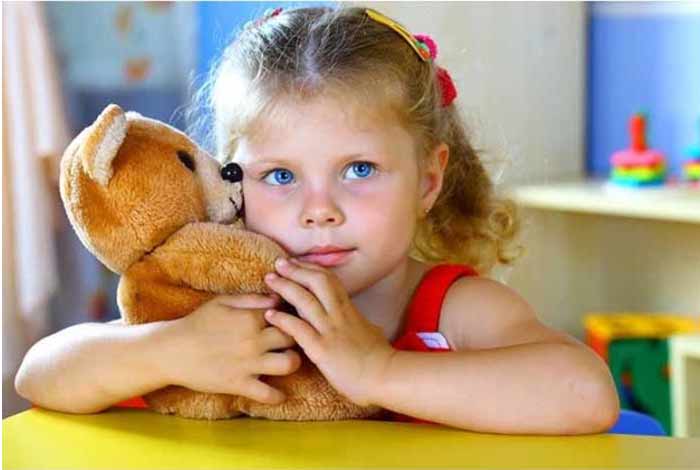
- Genetic Factors: Genetic problems play a vital role in the development of autism spectrum disorder. These problems can happen in two ways. The first is that when something happens before birth, i.e., during fetal development that makes changes in genes. The second is that the child inherits a problem in genes from parents. If mother or father, or both have some ASD characteristics, it is quite possible for the child to get ASD. It is unlikely that there is only one gene that causes autism, but actually a combination of several genes that works together contribute to the development of autism. So, the combination of genes might tell the differences seen in children with ASD that is why symptoms vary so much among different persons with autism.
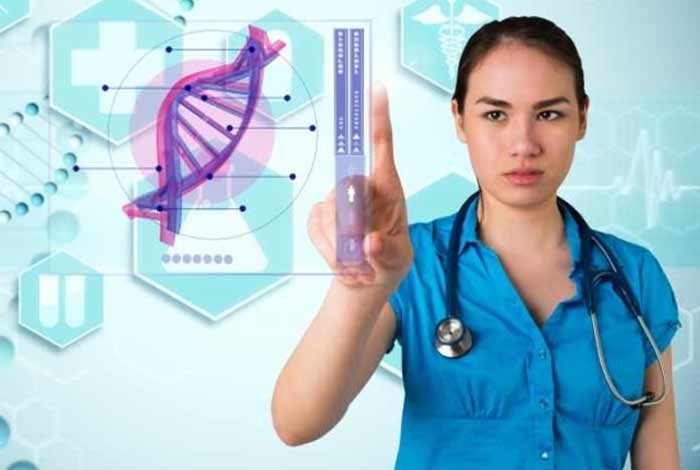
- Brain Development-Related Factors: The brain of a child suffering from autism tends to grow faster than a normal child, especially during first three years of his/her life. Such children have more cells in their brain than they need, and the connection between these cells is faulty. The brain of a young child develops all the time. When a child responds to something, connections in the brain are reinforced and becomes more strong. On the other hand, the connections which are not reinforced get disappear with time. In other words, they are pruned away if not required. This pruning makes space in the brain for important connections for actions and responses like talking, walking and understanding emotions. If this pruning does not take place, information might be sent or lost through wrong connections that could lead to autism.
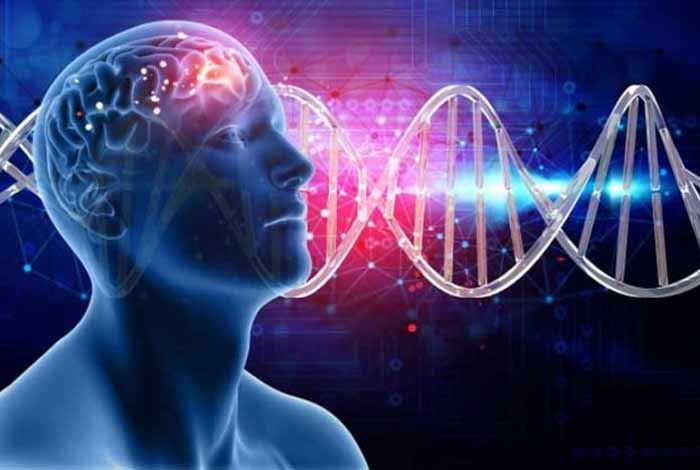
- Environmental Factors: There is no evidence, which shows that ASD can be caused from anything in environment like exposure to certain toxins or diet. Though external factors may trigger autism in a child, who is already prone to develop the symptoms of ASD.
Prevention of Autism Spectrum Disorders:
As already stated, doctors do not know the exact cause of autism, but they think that genes are crucial to the development of autism. Doctors also say that if a baby is born with birth defects, chances are there that the mother had been previously exposed to some chemicals during pregnancy. However, doctors are still unable to detect autism during pregnancy.
While autism can’t be prevented, one can lower the risk by taking the-below mentioned preventive measures:
1. Live Healthy: Taking a balanced diet, getting regular checkups and exercising can prevent autism and birth defects in the child. Having a good prenatal care, and taking all recommended supplements and vitamins also help prevent autism in the child.
2. Avoid Drugs During Pregnancy: It is advisable to get a doctor’s recommendation before taking any medication during pregnancy, especially anti-seizure drugs as it can promote autism in the fetus.
3. Existing Health Condition Treatment: If any other health problem exists like celiac disease or PKU in expected mothers, it is highly recommended to consult a doctor, and follow his advice to prevent ASD in the child.
4. Avoid Alcohol: Say no to alcohol or any kind of alcoholic beverage when you are pregnant.
5. Get Vaccinated: Make sure to get immunized for German measles or rubella before you become pregnant. It can prevent rubella-related autis

Treatment and Care of ASD:
Early treatment after diagnosis can help the child with autism. It can help the child to develop to overall abilities to function like a normal child. Symptoms may vary from child to child and often change over the time. Treatments depend on individual needs and family resources. However, children with autism responds well to a highly organized or specialized treatment. Such a treatment or program are tailored in a way to help parents understand the behavior and needs of their child. Below are several treatment approaches that could help children with autism to improve their overall functions:
- Behavioral Training and Management: This program utilizes self-help techniques and social skills to improve communication and behavior in children with ASD. Under this category, there are many treatment programs, including Treatment and Education of Autistic and Related Communication Handicapped Children (TEACCH), Applied Behavioral Analysis (ABA) and sensory integration.
- Specialized Therapy: This therapy covers occupational, physical and speech aspects. Occupational and physical therapy may help the child to sense information through sound, light, sight, hearing, smell and touch in more manageable ways. Whereas, speech therapy helps the children with autism to improve their social communication and language more efficiently.
- Parent Training and Community Support: Parents are advised from a doctor or advocacy group for training and support. It helps their child with autism to get comprehensive support.
- Medication: Medication is one of the most common treatments to help children with autism that exhibit symptoms of anxiety, depression, obsessive compulsive behavior and hyperactivity. Although there is no drug approved by the FDA for the treatment of ASD, doctors usually prescribe medicines to treat other associated conditions like anxiety and depression. These may include:
i. Selective serotonin reuptake inhibitors (SSRIs)
ii. Antipsychotic drugs
iii.Stimulant medicines

OTC Medications and Self-Management Methods for ASD:
Over-the-counter medications are strictly not recommended in the case of ASD. It is always advisable to get the condition properly diagnosed first and then go for only prescription medicines. This is because ASD is a neurodevelopment disorder and consuming any medicine without expert’s consultation can be dangerous.
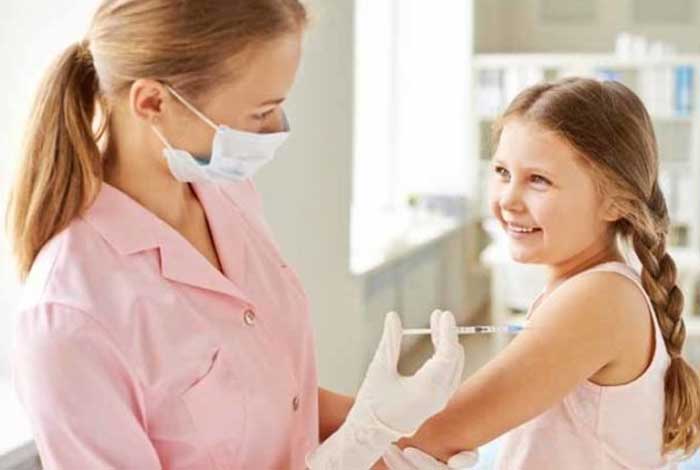
Self-Management Methods for ASD:
Self-management of ASD emphasizes on developing necessary behavioral changes and social skills related to day-to-day activities in children with autism spectrum disorders. These include:
- To make the child interact with others
- Help the child to develop self-care skills like bathing, cleaning and cooking
- Allow the child to indulge in a two-way communication
- Making him/her understand social cues like eye contact and hand gestures
- Help them regulate their emotions, so as to develop better ability to control outbursts, obsessions and meltdowns.
Health Tip by Expert:
Experts advises to focus on the child’s positive aspects of a child with ASD and encouraging them to involve in healthy activities in which he or she show interest. A caretaker of a child with ASD must try to involve them in their daily activities.


